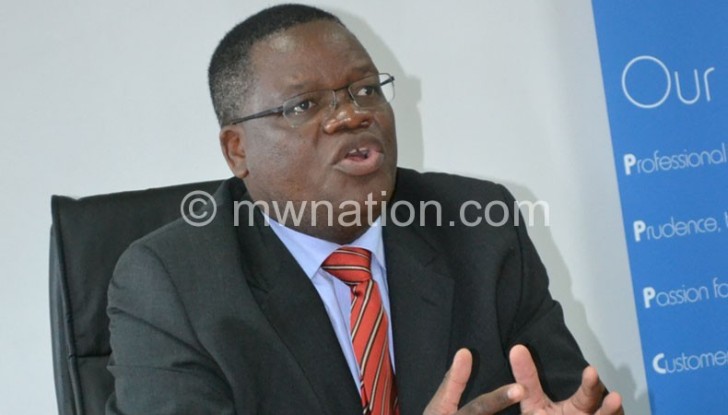MSB, indebank proceeds idle
At a time government is failing to fund critical public services such as health care, a cool K10.1 billion ($17,124,200) realised from the controversial sales of Malawi Savings Bank and Indebank continues to lie idle in Public Private Partnership Commission’s (PPPC) accounts, five months after the banks were disposed of. Confirming the state of affairs this week, both PPPC and Ministry of Finance said the funds have currently been placed on various interest earning instruments, dismissing fears that the value of the money will be eroded by inflation.

Ministry of Finance
PPPC chief executive Jimmy Lipunga said the proceeds were yet to be transferred to government’s account number one, hosted at Reserve Bank of Malawi, as the ministry had not issued PPPC with instructions on what to do with the funds.
“The funds are held on behalf of the Ministry of Finance. It would be breach of protocol to make public announcements on proceeds without the explicit approval of the ministry.
“We are keeping all the funds and [they] have been placed on various interest earning instruments,” he said, adding that the responsibility to utilise privatisation proceeds rests with the ministry.
On his part, Ministry of Finance spokesperson Nations Msowoya said Treasury is yet to evaluate various possible uses for the funds with guidance from its legal framework.
He said the law empowers the ministry to apply privatisation proceeds in areas designated by law—such as the budget and other investments—adding that “the proceeds are not available for general use.”
“The money has been placed in interest earning instruments and, therefore, will not be eroded by inflation. Government has no desire to hoard moneys.
“In view of very high public interest in the proceeds, it is only proper that government takes its time to look at the best way of utilising the resources,” said Msowoya.
But vice-chairperson of Public Accounts Committee (PAC) of Parliament, Kamlepo Kalua, expressed worry with government’s delays in providing information on how it intends to use the funds.
Kalua said his committee was still interested in the way MSB was disposed of and that they would take every action possible to know how the deal was handled.
“Truth and transparency should be adhered to and we will not rest until we know the truth,” he said.
While government is sitting on the billions, it is struggling to fund its operations after donors, who have long been contributing 40 percent to the national budget, suspended aid in 2013 in the wake of corruption scandals in government.
Critically suffering is public service delivery in various sectors, especially health where public hospitals are being forced to give patients one meal a day instead of the recommended three due to inadequate funding.
Meanwhile, government is yet to start collecting about K6 billion ($10,172,800) in MSB toxic assets for which government paid promissory notes to facilitate the selling of the bank.
In April this year, the Ministry of Finance instructed RBM to issue the promissory notes to replace toxic assets or loans owned by several businesses to shore up the MSB balance sheet, although the decision was interpreted by many as a bail-out package for politically linked businesses.
Msowoya said the team that was established to collect money on behalf of government is currently reviewing papers.
“The team working on the debt collection started its work recently, in September 2015; therefore it would be premature to expect them to have started collecting the money this early. Currently, the team is reviewing the paper work,” Msowoya said in a written response to a Weekend Nation questionnaire.
In July this year, government sold 75 percent of its shares in MSB to FDH Holdings Limited (FDH Bank) and a majority interests in IndeBank to National Bank of Malawi.
Disposition of MSB attracted controversy as opposition MPs and other stakeholders opposed the move, but government argues the bank had to be sold because it was almost bankrupt and its capital was far below the internationally accepted Basal II. n





